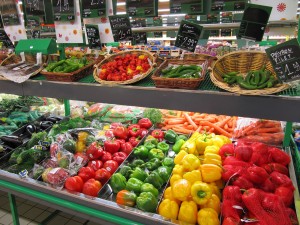“Legislation banning stores from spoiling and throwing away food is aimed at tackling epidemic of waste alongside food poverty.” The legislation was implemented in France after the French national vote.
After reading this news article, the first thought came up to me was that this is such a good policy to reduce food waste while improving poverty and starvation. However, if we think about this policy more deeply in terms of free ride situation. Such policy might only be applicable and effective in developed countries. It is a common phenomenon in China that one might pretend to be a homeless/beggar just to make money. Even there are people treating beggar as their career, and make money base on other people’s sympathy. As result, banning stores from throwing food away and distributing unsold food to homeless people might potentially promote this unethical behavior.
Despite that, there are still ways to avoid this problem. Government needs to be in charge of the distribution process, which all unsold foods need to be distributed to the people who is actually in need. Some kind of screening process is necessary to make sure everyone in need is helped and free riders cannot take advantage of this program. Additionally, food contamination is another big reason why most stores don’t want to give the unsold food away. Stores will need to pay for extra labor cost or build up new facility to make sure all their unsold food is clean and still good enough to eat. Therefore, making this program a government program will make the most sense.
Overall, this is an area everyone needs to work on. A French person normally throws out 20kg-30kg of food every year and each year 1.3 billion tonnes of food are wasted worldwide not including food waste from its origin (farm to wholesaler).


Daniel Lau
April 14, 2016 — 3:00 pm
I totally agree with your ideas about the free-riding situation and food safety issue. The free-riding situation is definitely present and I am assuming that this is the case in less developed and impoverished countries. However, I think that the free-riders would also be taking food safety into consideration since they will be risking their own health on top of probably not having enough finances to cover their medical expenses in the event that they suffer from food poisoning. On the other hand, I am also wondering if tackling this issue from the externalities side is the most appropriate route to take. Would it be more effective if consumers that wasted food were fined for the amount that they throw out? Just a thought on the demand side.